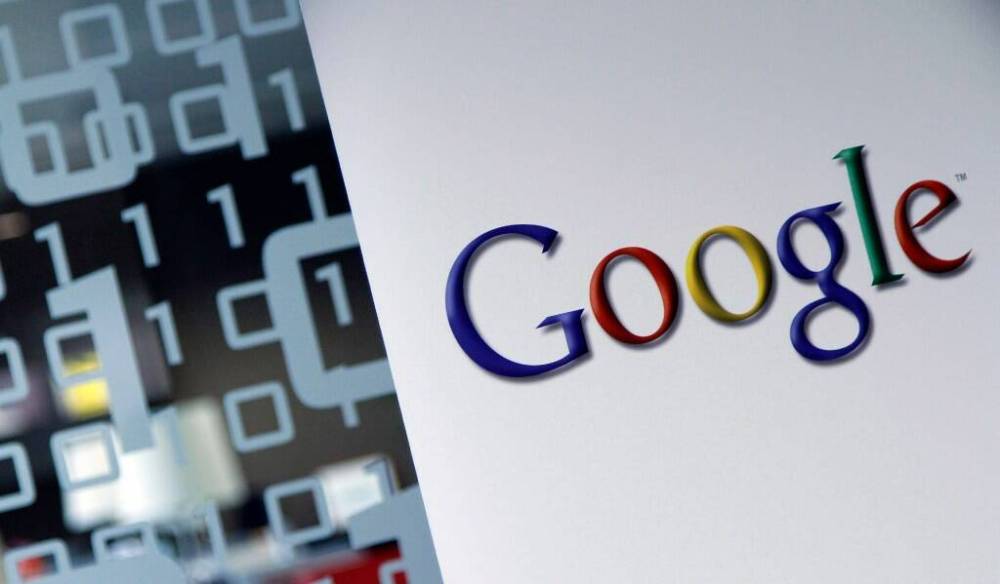Google in dangerous waters with site-blocking
Advertisement
Read this article for free:
or
Already have an account? Log in here »
To continue reading, please subscribe:
Monthly Digital Subscription
$0 for the first 4 weeks*
- Enjoy unlimited reading on winnipegfreepress.com
- Read the E-Edition, our digital replica newspaper
- Access News Break, our award-winning app
- Play interactive puzzles
*No charge for 4 weeks then price increases to the regular rate of $19.00 plus GST every four weeks. Offer available to new and qualified returning subscribers only. Cancel any time.
Monthly Digital Subscription
$4.75/week*
- Enjoy unlimited reading on winnipegfreepress.com
- Read the E-Edition, our digital replica newspaper
- Access News Break, our award-winning app
- Play interactive puzzles
*Billed as $19 plus GST every four weeks. Cancel any time.
To continue reading, please subscribe:
Add Free Press access to your Brandon Sun subscription for only an additional
$1 for the first 4 weeks*
*Your next subscription payment will increase by $1.00 and you will be charged $16.99 plus GST for four weeks. After four weeks, your payment will increase to $23.99 plus GST every four weeks.
Read unlimited articles for free today:
or
Already have an account? Log in here »
Hey there, time traveller!
This article was published 13/07/2023 (870 days ago), so information in it may no longer be current.
Sometimes, decisions have unexpected consequences.
Most people have probably heard that Google and Facebook announced plans to block links to stories by Canadian news organizations as part of their fight to halt Bill C-18, legislation which would make the internet giants share the revenue they make from advertising on those media stories.
But that could have some other interesting implications.

associated press Files
Google may be getting more than it bargained for in the battle over Canada’s new law.
For years, search engines have argued that they are more like a wire that delivers a signal, than they are the publishers of whatever that signal contains. So, even if they deliver a defamatory story to your living room, they shouldn’t be legally liable.
As a recent High Court of Australia case overturning a defamation verdict against Google pointed out, “Although humans who work for Google design the search engine and its component programs, a Google search is a fully automated process that operates without human intervention.”
Judges in that case also talked about how Google viewed itself: “Google states that its mission, in providing this service, is ‘to organize the world’s information and make it universally accessible and useful’ by connecting users to information on the internet that is relevant to their query and is of high quality.”
Without a hand in creating a defamatory article or specifically selecting it, Google didn’t have to worry about what the judges raise as settled law in defamation cases: that “any act of participation in the communication of defamatory matter to a third party is sufficient to make a defendant a publisher, regardless of their knowledge or intent… (A) person who has been instrumental in, or contributes to any extent to, the publication of defamatory matter is a publisher.”
Google’s simple defence? It didn’t contribute to the publication.
Just a pipe. A majority of the High Court judges agreed with that position.
It may be a huge legal jump, but what if, by its own choice, Google is not, in fact, simply an automated process that makes the world’s information “universally accessible and useful”? What if, for its own commercial and financial reasons, Google has human employees who decide to specifically identify and block content? Does that mean it is contributing to publication, and in the process, leaving itself open to a whole new range of defamation verdicts over the content it does choose to carry?
Because Google is doing just that: blocking Canadian news sources.
It brings to mind a legal problem is one that has bedevilled the media when it comes to reader comments: many publishers have run afoul of the issue of comment moderation, and the reverse onus that moderation creates.
If you, as a publisher, moderate the comments on articles, you can remove the blatantly hateful and offensive ones. But in so doing, the legal argument is that you are implicitly approving of comments you do publish — and with that approval comes the risk of legal liability for what you do decide to put on your website. You’re not a pipeline for comments, you’re an editor and publisher of them.

The concept presents serious legal risk.
That’s because defamation actions always seem to attach whoever has the deepest pockets.
If Fred Smith calls you a liar in the comments, you sue Fred — but you also sue the newspaper or website that published Fred’s words, because Fred may not have anything worth taking.
And if the newspaper is a good plump target for your anger and desire for financial retribution, imagine what kind of target Google would be.
Maybe it’s wishful thinking. But Google is now making a clear and deliberate decision about what should and shouldn’t be published.
Hello, publisher. And maybe, hello, legal liability.






